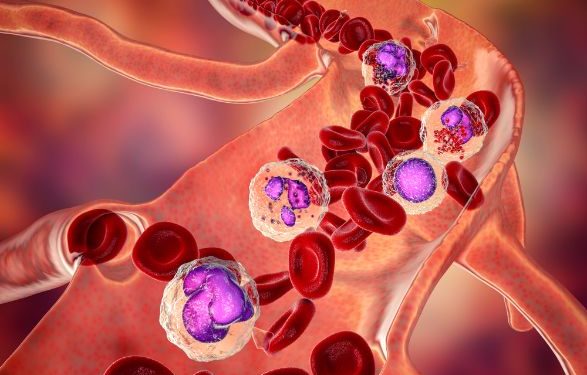CLL starts in abnormal lymphoid stem cells. These develop into cancerous B-cells that crowd out healthy white blood cells and other cells in the bone marrow, making it harder to produce normal blood cells. This makes it hard to fight off infections and other illnesses. Most cases of cll are diagnosed in people over age 55. It’s almost unheard of in children and is rare in people under age 50. It’s much less aggressive than other forms of leukemia and has a better survival rate than acute leukemias.
Your health care team can diagnose cll by doing a physical examination and reviewing a sample of your blood, called a peripheral blood smear. The sample will be tested with techniques such as flow cytometry and cytochemistry to identify the cancerous lymphocytes and separate them from other cells in the blood. Genetic testing can also help doctors understand the behavior of the lymphocytes and predict their response to treatment.
The type of cll cancer you have and its progression will determine how soon you need treatment. Symptoms such as fatigue that interferes with your daily life, swollen lymph nodes and recurrent infections suggest that you need to get treated right away. Other factors that indicate the need for immediate treatment include a fast lymphocyte count doubling time, a genetic test that shows that your disease is likely to progress quickly and a poor response to previous treatments.

If your cll cancer is in the early stages and doesn’t cause symptoms, your doctor may recommend watchful waiting. They will monitor you closely and give you treatment if symptoms appear or change. This is also known as active monitoring. Tyrosine kinase inhibitor (TKI) therapy: This treatment blocks the enzyme that causes stem cells to develop into more white blood cells than your body needs. Examples of these drugs are ibrutinib (Imbruvica), acalabrutinib (Calquence) and idelalisib (Duvelisib).
BCL2 inhibitor therapy: This treatment targets a protein on the cell that helps the cancerous lymphocytes grow. It’s used to treat symptomatic or progressive, recurrent or refractory cll and can be given alone or with other anticancer therapies. Venetoclax is a type of BCL2 inhibitor.
Clinical trials: These are research studies that can offer you the latest treatment options before they’re widely available. They can also help you find support from others who have gone through a similar situation. You can learn more about participating in a clinical trial from your health care provider or from the Leukemia & Lymphoma Society.
Treatment for cll aims to slow down or stop the growth of leukemia cells and give you long periods of remission. Your doctor will prescribe a combination of medicines to meet your unique needs. Common side effects of treatment include headache, diarrhea, rashes and changes to your blood pressure and heart rate. The type of medicine you take will depend on your diagnosis, its stage and your general health. Learn more about the different types of cll cancer treatment and their possible side effects.









